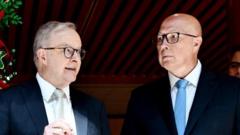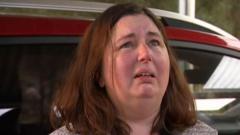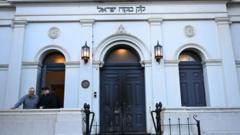In a pivotal first debate leading up to the May 3 federal election, Prime Minister Anthony Albanese confronted Opposition Leader Peter Dutton. The event, hosted by Sky News and The Daily Telegraph, primarily focused on cost of living concerns, amid predictions of a tightly contested election. Albanese was ultimately deemed the winner by undecided voters in attendance, marking an important moment in the lead-up to the polls.
**Tensions Rise in Australia’s Election Debate: Albanese vs. Dutton**

**Tensions Rise in Australia’s Election Debate: Albanese vs. Dutton**
Australia's Prime Minister and his rival face off in a heated discussion on pressing issues, including the cost of living.
The debate began with an audience poll revealing widespread anxiety over rising living costs, prompting a strong reaction from both candidates. Dutton termed the show of hands a "very confronting scene," while Albanese highlighted his administration's efforts to address inflation and stabilize wages, claiming that interest rates were on a downward trend.
The candidates also deliberated on how to handle US President Donald Trump's tariffs. Albanese asserted that Australia was in a unique position to negotiate effectively, promising to seek better deals without imposing reciprocal tariffs. Conversely, Dutton emphasized his negotiating experience with the Trump administration and underlined the necessity for a prime minister who can stand strong against international pressures to protect the country’s interests.
As the election draws closer, questions linger regarding who will ultimately secure a coalition government, with independent candidates and minor parties potentially playing a critical role in shaping Australia’s political landscape.
With both leaders outlining their visions, Australia stands at a crossroads, ready to make a choice on its next prime minister.
The candidates also deliberated on how to handle US President Donald Trump's tariffs. Albanese asserted that Australia was in a unique position to negotiate effectively, promising to seek better deals without imposing reciprocal tariffs. Conversely, Dutton emphasized his negotiating experience with the Trump administration and underlined the necessity for a prime minister who can stand strong against international pressures to protect the country’s interests.
As the election draws closer, questions linger regarding who will ultimately secure a coalition government, with independent candidates and minor parties potentially playing a critical role in shaping Australia’s political landscape.
With both leaders outlining their visions, Australia stands at a crossroads, ready to make a choice on its next prime minister.





















